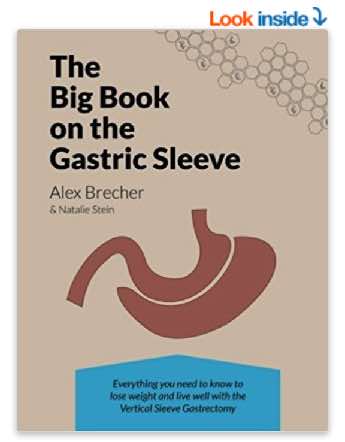Did you know that following a gastric sleeve diet is crucial for patients that undergo sleeve gastrectomy, both before and after the operation?
Well, it is. That’s why we will try to explain all aspects of the gastric sleeve diet, in order to help you get a realistic idea of what it’s all about. We hope this article will be useful when you consult your doctor!
What Is Sleeve Gastrectomy?
Sleeve gastrectomy is a bariatric procedure that, in normal cases, surgically removes three quarters of the stomach. The resulting smaller stomach requires less food in order for the patient to feel full and satisfied.
This can be an effective way for obese people to lose weight, although exercise and a healthy diet should also be part of the overall treatment. It is important to understand that having a sleeve gastrectomy is a change of lifestyle just as much as a surgical procedure.
The name sleeve gastrectomy comes from the tube (or sleeve) shaped part of the stomach that remains after the procedure. Because of the gastrectomy’s permanent results, the decision to have the operation should be carefully considered and discussed.
Other bariatric surgery procedures – such as a gastric bypass – could also be a viable option, so make sure all alternatives are considered before committing to any specific one. Hasty decisions are seldom a way to achieve better health.

Why Is a Special Gastric Sleeve Diet Needed?
A special gastric sleeve diet before surgery is needed to prepare your body for the big change to come. Losing 75% of its stomach really is a big change and a major trauma for the body, and if eating only certain foods can lessen that trauma, then it’s an easy choice.
The diet should be followed the last fourteen days prior to surgery, with the ultimate goal of reducing the risks involved. This is an all liquid diet, and it’s called a gastric sleeve pre op diet.
After the gastrectomy comes the gastric sleeve post op diet. It has four different stages, where the fourth and last stage is to be followed for the rest of your life. They are intended to first help heal the stomach and then to gradually transition into a well-balanced diet that will keep you healthy and happy.
Before we continue, here’s Dr Matthew Weiner with his take on eating after bariatric surgery:
How Is a Gastric Sleeve Pre Op Diet Composed?
This all liquid diet is prescribed for the last fourteen days prior to the operation. It consists of three meals per day, of which two are protein supplements in liquid form, and one is a soup of your choice. All kinds of soups are allowed, except ones that are high in fat.
Between meals, you are allowed to have decaffeinated coffee, low-fat milk and sugar-free products like popsicles and drinks. Low-fat products like yogurt and cottage cheese are also allowed.
As mentioned earlier, the gastric sleeve pre-op diet is intended to prepare your stomach and other organs, and thereby reduce risks associated with surgery. So do yourself a favor and follow it as strictly as possible.

The Four Stages of a Gastric Sleeve Post Op Diet
After the operation has been made, a special gastric sleeve post-op diet should be followed. It consists of four stages, with each one having a specific purpose, but all of them being important for your health and well-being. Following a special diet after gastric sleeve will help minimize complications and negative side effects, as well as assist in the weight loss process.
Stage 1 (first week)
The overall goal of this stage is to stay hydrated, which will help heal the stomach, and get enough protein to prevent muscle tissue degradation. It is recommended that you consume 1.8 liter of water per day, all foods included. If your urine has a dark color, drink even more. Staying hydrated is especially important these first days. So even though you most likely will suffer from a poor appetite, make sure you get enough fluids.
Only clear liquids are allowed. Water, green tea, sugar-free drinks and fruit juices without added sugar are all ok. Proteins can be obtained from skimmed milk, and beef and chicken broth. Stay away from caffeinated coffee, alcohol, and carbonated and sugary beverages.
Stage 2 (week 2 and 3)
You should continue to consume 1.8 liter of water per day. All allowed foods from stage 1 are still acceptable. But now it is time to increase the amount of protein. Yogurt, egg custard, fruit smoothies and protein supplements can be added to the list of allowed foods. You should in general only consume low-fat, low-sugar and high-protein foods.
Stage 3 (week 4)
You are now ready to skip the all liquid diet and to start eat soft foods. Add mashed potatoes, tuna, chicken salad, low-fat cheese, eggs and beans to the list of allowed foods. Avoid alcohol and spicy food. Eat no more than 800 calories per day.
Stage 4 (rest of your life)
Congratulations for making it this far! Your stomach is finally ready to digest solid foods. Your gastric sleeve post op diet should from now on be low on fat, low on carbohydrates, and high in proteins. It goes without saying that vitamins and dietary minerals should be a daily part of what you eat and drink. This last and final stage is nutritionally very well-balanced, in stark contrast to extreme diets like the GM diet or the 13 day diet.
Limit alcohol consumption and stay away from tobacco and other drugs. Be sure to make exercise a routine. Add all these factors up and you will lose plenty of weight and live a much healthier life than you did before you had the sleeve gastrectomy.
More Information
If you want to learn more about the gastric sleeve diet, you can find several great books on the subject. These are some of the best. Once you are seriously considering a sleeve gastrectomy, the next step is of course to consult a medical doctor that specializes in this field.
Thank you for visiting The Diet Expert! Be sure to check out the rest of our interesting articles.



